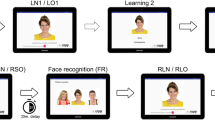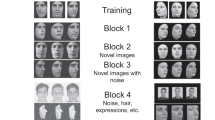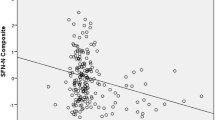Abstract
Memory loss is a problem that affects the majority of older adults worldwide. Making an early diagnosis allows specialist doctors to carry out rehabilitation programs as a preventive measure against cognitive problems. This has motivated the development of the present application for the diagnosis of memory, based on the already existing Face-Name Associative Memory Exam (FNAME). The test counts the number of correct answers when matching the face with the corresponding name, using the associative memory. In this way, a process that is previously carried out manually is automated, prioritizing having a more accurate measurement of the response times of the participants. In addition, a self-test is presented that allows having a second criterion on the user's diagnosis. Both tests are presented in an interactive interface that has been designed using MATLAB software, using the uicontrol tool. The experimental tests carried out corroborate the correct operation of this proposal, the results of which show scores and response times.
Access this chapter
Tax calculation will be finalised at checkout
Purchases are for personal use only
Similar content being viewed by others
References
Majerus, S.: Working memory treatment in aphasia: a theoretical and quantitative review. J. Neurolinguistics 48, 157–175 (2018). https://doi.org/10.1016/j.jneuroling.2017.12.001
Loprinzi, P.D., Blough, J., Crawford, L., Ryu, S., Zou, L., Li, H.: The temporal effects of acute exercise on episodic memory function: systematic review with meta-analysis. Brain Sci. 9, 87 (2019). https://doi.org/10.3390/brainsci9040087
Greene, N.R., Naveh-Benjamin, M.: A specificity principle of memory: evidence from aging and associative memory. Psychol. Sci. 31, 316–331 (2020). https://doi.org/10.1177/0956797620901760
Loprinzi, P.D., Blough, J., Ryu, S., Kang, M.: Experimental effects of exercise on memory function among mild cognitive impairment: systematic review and meta-analysis. Phys. Sportsmed. 47, 21–26 (2019). https://doi.org/10.1080/00913847.2018.1527647
Schutz, M., Stefanucci, J.K., Baum, S.H., Roth, A.: Name that percussive tune: associative memory and amplitude envelope. Q. J. Exp. Psychol. 70, 1323–1343 (2017). https://doi.org/10.1080/17470218.2016.1182562
Brunyé, T.T., Moran, J.M., Holmes, A., Mahoney, C.R., Taylor, H.A.: Non-invasive brain stimulation targeting the right fusiform gyrus selectively increases working memory for faces. Brain Cogn. 113, 32–39 (2017). https://doi.org/10.1016/j.bandc.2017.01.006
Peterson, D.J., Schmidt, N.E., Naveh-Benjamin, M.: The role of schematic support in age-related associative deficits in short-term and long-term memory. J. Mem. Lang. 92, 79–97 (2017). https://doi.org/10.1016/j.jml.2016.05.007
Ramon, M., Gobbini, M.I.: Familiarity matters: a review on prioritized processing of personally familiar faces. Vis. cogn. 26, 179–195 (2018). https://doi.org/10.1080/13506285.2017.1405134
Rugo, K.F., Tamler, K.N., Woodman, G.F., Maxcey, A.M.: Recognition-induced forgetting of faces in visual long-term memory. Atten. Percept. Psychophys. 79, 1878–1885 (2017). https://doi.org/10.3758/s13414-017-1419-1
Gignac, G.E., Shankaralingam, M., Walker, K., Kilpatrick, P.: Short-term memory for faces relates to general intelligence moderately. Intelligence 57, 96–104 (2016). https://doi.org/10.1016/j.intell.2016.05.001
Weeks, J.C., Biss, R.K., Murphy, K.J., Hasher, L.: Face–name learning in older adults: a benefit of hyper-binding. Psychon. Bull. Rev. 23, 1559–1565 (2016). https://doi.org/10.3758/s13423-016-1003-z
García-Magariño, I., Varela-Aldas, J., Palacios-Navarro, G., Lloret, J.: Fog computing for assisting and tracking elder patients with neurodegenerative diseases. Peer-to-Peer Netw. Appl. 12, 1225–1235 (2019)
Chicaiza, F.A., Lema-Cerda, L., Álvarez, V.M., Andaluz, V.H., Varela-Aldás, J., Palacios-Navarro, G., García-Magariño, I.: Virtual reality-based memory assistant for the elderly. In: Lecture Notes in Computer Science, pp. 269–284 (2018)
Varela-aldás, J., Palacios-navarro, G., García-magariño, I.: Immersive virtual reality app for mild cognitive impairment. Rev. Ibérica Sist. e Tecnol. Informação RISTI. 04, 278–290 (2019)
González-Landero, F., García-Magariño, I., Amariglio, R., Lacuesta, R.: Smart cupboard for assessing memory in home environment. Sensors (Switzerland) 19, 1–21 (2019). https://doi.org/10.3390/s19112552
Rentz, D.M., Amariglio, R.E., Becker, J.A., Frey, M., Olson, L.E., Frishe, K., Carmasin, J., Maye, J.E., Johnson, K.A., Sperling, R.A.: Face-name associative memory performance is related to amyloid burden in normal elderly. Neuropsychologia 49, 2776–2783 (2011). https://doi.org/10.1016/j.neuropsychologia.2011.06.006
Rubiño, J., Andrés, P.: The face-name associative memory test as a tool for early diagnosis of Alzheimer’s disease. Front. Psychol. 9, 1464 (2018). https://doi.org/10.3389/fpsyg.2018.01464
Kormas, C., Zalonis, I., Evdokimidis, I., Potagas, C.: The performance of patients with Parkinson’s disease on the face-name associative memory examination. Neurol. Sci. 40, 405–407 (2019). https://doi.org/10.1007/s10072-018-3560-6
Vila-Castelar, C., Papp, K.V., Amariglio, R.E., Torres, V.L., Baena, A., Gomez, D., Rendon, J., Samaroo, A., Lopera, F., Rentz, D.M., Quiroz, Y.T.: Validation of the Latin American Spanish version of the face-name associative memory exam in a Colombian Sample. Clin. Neuropsychol. (2019). https://doi.org/10.1080/13854046.2019.1690050
Sanabria, A., Alegret, M., Rodriguez-Gomez, O., Valero, S., Sotolongo-Grau, O., Monté-Rubio, G., Abdelnour, C., Espinosa, A., Ortega, G., Perez-Cordon, A., Gailhajanet, A., Hernandez, I., Rosende-Roca, M., Vargas, L., Mauleon, A., Sanchez, D., Martin, E., Rentz, D.M., Lomeña, F., Ruiz, A., Tarraga, L., Boada, M., Aguilera, N., Berthier, M., Buendia, M., Bullich, S., Campos, F., Cañabate, P., Cuevas, C., De Rojas, I., Diego, S., Gil, S., Giménez, J., Gismondi, R., Gómez-Chiari, M., Guitart, M., Hernández-Olasagarre, B., Ibarria, M., Lafuente, A., Martínez, J., Moreno, M., Moreno-Grau, S., Núñez, L., Orellana, A., Páez, A., Pancho, A., Pavía, J., Pelejà, E., Pérez-Grijalba, V., Pesini, P., Preckler, S., Romero, J., Ruiz, S., Santos, M., Sarasa, M., Tejero, M.A., Torres, M., Vivas, A.: The Spanish version of face-name associative memory exam (S-FNAME) performance is related to amyloid burden in subjective cognitive decline. Sci. Rep. 8, 1–9 (2018). https://doi.org/10.1038/s41598-018-21644-y
Psychology Today: Memory test. https://psychologytoday.tests.psychtests.com/bin/transfer?req=MTF8MzM2MHw2NzI5MDI0fDB8MQ
Author information
Authors and Affiliations
Corresponding author
Editor information
Editors and Affiliations
Rights and permissions
Copyright information
© 2021 The Author(s), under exclusive license to Springer Nature Switzerland AG
About this paper
Cite this paper
Varela-Aldás, J., Buele, J., Pérez, D., Palacios-Navarro, G. (2021). Memory Diagnostic Application Using the FNAME. In: Rocha, Á., Ferrás, C., López-López, P.C., Guarda, T. (eds) Information Technology and Systems. ICITS 2021. Advances in Intelligent Systems and Computing, vol 1331. Springer, Cham. https://doi.org/10.1007/978-3-030-68418-1_5
Download citation
DOI: https://doi.org/10.1007/978-3-030-68418-1_5
Published:
Publisher Name: Springer, Cham
Print ISBN: 978-3-030-68417-4
Online ISBN: 978-3-030-68418-1
eBook Packages: Intelligent Technologies and RoboticsIntelligent Technologies and Robotics (R0)




